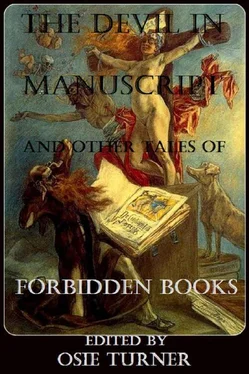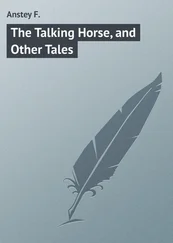In the stage-box sat several elderly and decrepit people, and among them a stately ruin of a woman on a very large scale, with a profile—for I did not see her front face—that stamped itself into my brain as a seal impresses hot wax. By the tragic gesture with which she took a pinch of snuff, I was sure it must be Mrs. Siddons. Her brother, John Kemble, sat behind,—a broken-down figure, but still with a kingly majesty about him. In lieu of all former achievements, Nature enables him to look the part of Lear far better than in the meridian of his genius. Charles Matthews was likewise there; but a paralytic affection has distorted his once mobile countenance into a most disagreeable one-sidedness, from which he could no more wrench it into proper form than he could rearrange the face of the great globe itself. It looks as if, for the joke’s sake, the poor man had twisted his features into an expression at once the most ludicrous and horrible that he could contrive, and at that very moment, as a judgment for making himself so hideous, an avenging Providence had seen fit to petrify him. Since it is out of his own power, I would gladly assist him to change countenance, for his ugly visage haunts me both at noontide and night-time. Some other players of the past generation were present, but none that greatly interested me. It behooves actors, more than all other men of publicity, to vanish from the scene betimes. Being at best but painted shadows flickering on the wall and empty sounds that echo anther’s thought, it is a sad disenchantment when the colors begin to fade and the voice to croak with age.
What is there new in the literary way on your side of the water? Nothing of the kind has come under any inspection, except a volume of poems published above a year ago by Dr. Channing. I did not before know that this eminent writer is a poet; nor does the volume alluded to exhibit any of the characteristics of the author’s mind as displayed in his prose works; although some of the poems have a richness that is not merely of the surface, but glows still the brighter the deeper and more faithfully you look into then. They seem carelessly wrought, however, like those rings and ornaments of the very purest gold, but of rude, native manufacture, which are found among the gold-dust from Africa. I doubt whether the American public will accept them; it looks less to the assay of metal than to the neat and cunning manufacture. How slowly our literature grows up! Most of our writers of promise have come to untimely ends. There was that wild fellow, John Neal, who almost turned my boyish brain with his romances; he surely has long been dead, else he never could keep himself so quiet. Bryant has gone to his last sleep, with the Thanatopsis gleaming over him like a sculptured marble sepulchre by moonlight. Halleck, who used to write queer verses in the newspapers and published a Don Juanic poem called Fanny, is defunct as a poet, though averred to be exemplifying the metempsychosis as a man of business. Somewhat later there was Whittier, a fiery Quaker youth, to whom the muse had perversely assigned a battle-trumpet, and who got himself lynched, ten years agone, in South Carolina. I remember, too, a lad just from college, Longfellow by name, who scattered some delicate verses to the winds, and went to Germany, and perished, I think, of intense application, at the University of Gottingen. Willis—what a pity!—was lost, if I recollect rightly, in 1833, on his voyage to Europe, whither he was going to give us sketches of the world’s sunny face. If these had lived, they might, one or all of them, have grown to be famous men.
And yet there is no telling: it may be as well that they have died. I was myself a young man of promise. O shattered brain, O broken spirit, where is the fulfilment of that promise? The sad truth is, that, when fate would gently disappoint the world, it takes away the hopefulest mortals in their youth; when it would laugh the world’s hopes to scorn, it lets them live. Let me die upon this apothegm, for I shall never make a truer one.
What a strange substance is the human brain! Or rather,—for there is no need of generalizing the remark,—what an odd brain is mine! Would you believe it? Daily and nightly there come scraps of poetry humming in my intellectual ear—some as airy as birdnotes, and some as delicately neat as parlor-music, and a few as grand as organ-peals—that seem just such verses as those departed poets would have written had not an inexorable destiny snatched them from their inkstands. They visit me in spirit, perhaps desiring to engage my services as the amanuensis of their posthumous productions, and thus secure the endless renown that they have forfeited by going hence too early. But I have my own business to attend to; and besides, a medical gentleman, who interests himself in some little ailments of mine, advises me not to make too free use of pen and ink. There are clerks enough out of employment who would be glad of such a job.
Goodbye! Are you alive or dead? and what are you about? Still scribbling for the Democratic? And do those infernal compositors and proof-readers misprint your unfortunate productions as vilely as ever? It is too bad. Let every man manufacture his own nonsense, say I. Expect me home soon, and—to whisper you a secret—in company with the poet Campbell, who purposes to visit Wyoming and enjoy the shadow of the laurels that he planted there. Campbell is now an old man. He calls himself well, better than ever in his life, but looks strangely pale, and so shadow-like that one might almost poke a finger through his densest material. I tell him, by way of joke, that he is as dim and forlorn as Memory, though as unsubstantial as Hope.
Your true friend, P.
P. S.—Pray present my most respectful regards to our venerable and revered friend Mr. Brockden Brown.
It gratifies me to learn that a complete edition of his works, in a double-columned octavo volume, is shortly to issue from the press at Philadelphia. Tell him that no American writer enjoys a more classic reputation on this side of the water. Is old Joel Barlow yet alive? Unconscionable man! Why, he must have nearly fulfilled his century. And does he meditate an epic on the war between Mexico and Texas with machinery contrived on the principle of the steam-engine, as being the nearest to celestial agency that our epoch can boast? How can he expect ever to rise again, if, while just sinking into his grave, he persists in burdening himself with such a ponderosity of leaden verses?
END
The Inmost Light
By
Arthur Machen
One evening in autumn, when the deformities of London were veiled in faint blue mist, and its vistas and far-reaching streets seemed splendid, Mr. Charles Salisbury was slowly pacing down Rupert Street, drawing nearer to his favourite restaurant by slow degrees. His eyes were downcast in study of the pavement, and thus it was that as he passed in at the narrow door a man who had come up from the lower end of the street jostled against him.
“I beg your pardon—wasn’t looking where I was going. Why, it’s Dyson!”
“Yes, quite so. How are you, Salisbury?”
“Quite well. But where have you been, Dyson? I don’t think I can have seen you for the last five years?”
“No; I dare say not. You remember I was getting rather hard up when you came to my place at Charlotte Street?”
“Perfectly. I think I remember your telling me that you owed five weeks’ rent, and that you had parted with your watch for a comparatively small sum.”
“My dear Salisbury, your memory is admirable. Yes, I was hard up. But the curious thing is that soon after you saw me I became harder up. My financial state was described by a friend as ‘stone broke.’ I don’t approve of slang, mind you, but such was my condition. But suppose we go in; there might be other people who would like to dine—it’s a human weakness, Salisbury.”
Читать дальше












